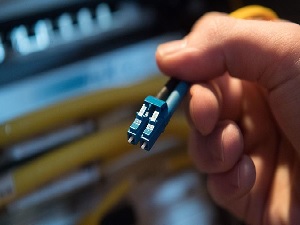



Date:01/07/19
 Government officials from Germany and the Netherlands signed an agreement to create the first joint military Internet. This is reported by ZDNet.
Government officials from Germany and the Netherlands signed an agreement to create the first joint military Internet. This is reported by ZDNet.
The new Dutch-German military Internet will be called Tactical Edge Networking, or abbreviated TEN.
Firstly, TEN will integrate communications between the German Bundeswehr ground operations (D-LBO) and the FOXTROT tactical communications program of the Netherlands Ministry of Defense, used by the Dutch military.
Troops that will operate in the TEN network will use identical computers, radios, tablets and telephones, regardless of country of origin.
An agreement on the creation of a European military network was signed in Brussels, the capital of Belgium, where NATO defense ministers held a meeting this week.
This is the first time that the two countries combine parts of their military network, and this project is considered as a test for combining the military networks of other NATO members in the future.
The master plan is to develop and apply new and improved collaborative network standards in all NATO countries.
It is expected that the deployment of TEN will cost both countries millions of euros, which will go to re-equip tens of thousands of soldiers and vehicles with new compatible equipment.
The efforts of the Netherlands and Germany to create a joint Internet are the opposite approach to network isolationism, which China and Russia are trying to realize.
Last month, China announced plans to develop its own operating system, which will replace Windows on computers used by its military.
A few days later, Russia announced plans to replace Windows with its own distribution of Linux called Astra Linux. Russian IT specialists explain this intention with fears that Windows may hide backdoors that can be used by American intelligence to spy on the actions of the Russian government.
European Union agrees to create military Internet for NATO purposes
 Government officials from Germany and the Netherlands signed an agreement to create the first joint military Internet. This is reported by ZDNet.
Government officials from Germany and the Netherlands signed an agreement to create the first joint military Internet. This is reported by ZDNet.The new Dutch-German military Internet will be called Tactical Edge Networking, or abbreviated TEN.
Firstly, TEN will integrate communications between the German Bundeswehr ground operations (D-LBO) and the FOXTROT tactical communications program of the Netherlands Ministry of Defense, used by the Dutch military.
Troops that will operate in the TEN network will use identical computers, radios, tablets and telephones, regardless of country of origin.
An agreement on the creation of a European military network was signed in Brussels, the capital of Belgium, where NATO defense ministers held a meeting this week.
This is the first time that the two countries combine parts of their military network, and this project is considered as a test for combining the military networks of other NATO members in the future.
The master plan is to develop and apply new and improved collaborative network standards in all NATO countries.
It is expected that the deployment of TEN will cost both countries millions of euros, which will go to re-equip tens of thousands of soldiers and vehicles with new compatible equipment.
The efforts of the Netherlands and Germany to create a joint Internet are the opposite approach to network isolationism, which China and Russia are trying to realize.
Last month, China announced plans to develop its own operating system, which will replace Windows on computers used by its military.
A few days later, Russia announced plans to replace Windows with its own distribution of Linux called Astra Linux. Russian IT specialists explain this intention with fears that Windows may hide backdoors that can be used by American intelligence to spy on the actions of the Russian government.
Views: 976
©ictnews.az. All rights reserved.Similar news
- Mobile operators of national market to reduce roaming tariffs
- Iran vows to unplug Internet
- China Targeting Telecoms in Corruption Probe
- Bangladesh to use electronic voting system for next elections
- Philippine IT sector to launch five-year digital strategy plan
- Russian Premier Vladimir Putin meets ITU Secretary-General Hamadoun Touré
- US lawmakers propose to regulate use of geolocation data
- Unlimited mobile data plans dying as telcos gear up for cloud future
- Europe at risk of falling behind US and Asia on 4G use
- Netherlands first to regulate on net neutrality
- Korean Co Takes Aim At Display Patents
- Regulators, Banks Look for IT Hires After Breakdowns
- Electron transactions spreading
- Schools in remote rural areas will connect to the single database via network without SIM
- Obama to Personally Tweet From Twitter Account





















